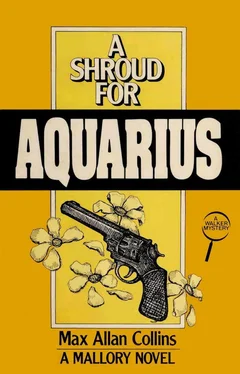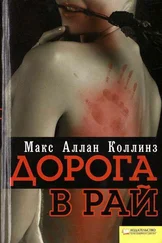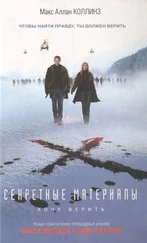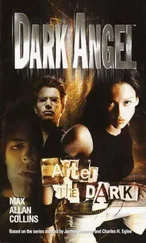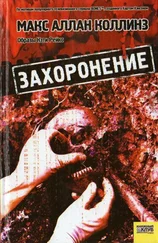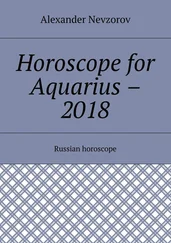This time his shrug was easily perceptible. “What of it?”
“You saw her there.”
“I saw a lot of people there. You included, I believe.”
“You didn’t dance with me, Brad.”
He looked at me with undisguised disgust, but his voice remained controlled. “She was an old girl friend. We danced. We talked about old times.” He began to open the car door. “Now, if you don’t mind, I’d like to get back inside...”
“Please, Faulkner. Brad. Humor me for a couple more minutes.”
He sighed heavily, shut the door. Turned his stare forward again.
“At the reunion, you and Ginnie talked all evening. Without meaning to pry, I’d like to ask if anything the two of you spoke about might have been upsetting to her.”
“Without meaning to pry,” he said with dry sarcasm.
“They say she committed suicide, you know.”
His dark face whitened.
“Did I strike a nerve, Brad?”
“Don’t be foolish.”
“Are you afraid what you argued about may have upset her so badly she took her life?”
He moved around in the seat. “Who says we argued? And the reunion was a month before; why would anything we talked about then cause her to... take her life, a month later? Don’t be foolish.”
“Plenty of people saw you arguing at that restaurant, the Sports Page, Brad. And if Ginnie’s life was in general disarray, your confrontation with her could have been one of several straws that broke the camel’s back.”
He rubbed his forehead with one hand, as if he were trying to wipe off a deep stain. “I wouldn’t like to think that. Despite...”
“You wouldn’t like to think you were part of what might have caused her to kill herself, you mean?”
“N-no.”
“ Despite something, you said. Despite, what?”
He looked out his side window, the back of his head to me as he spoke. “Old business.”
“Old business?”
Now he looked toward me, but seemed to look past me, rather than at me. “My little boy was drowned last year, did you know that?”
It was like taking a blow, hearing him say that. His eyes were pools of pain; I hadn’t noticed it before, but they were.
I said, “I... I’d heard something to that effect, but... look, I’m very, very sorry.”
“He was eight. A quiet little boy. Not very athletic. An average student. He collected stamps. Nothing remarkable about him. Except that he was my son and he meant more to me than...” Something caught in his voice.
I didn’t know why my questioning him about Ginnie had dredged this up, but nonetheless I found myself apologizing. “Brad, I’m sorry... I didn’t mean to...”
He looked toward me; beyond me. “He was our only one, Seth was. We wanted more, but none came. She blamed me.”
I didn’t say anything, just sat there feeling embarrassed, letting this run its course.
“He couldn’t swim,” he said, with an odd, mirthless smile. “Alice was against it. She didn’t even like me having a boat.”
He wasn’t looking at me; he was looking toward the bridge. Toward the Mississippi. The river.
“And he drowned one day. We were out...”
I touched his arm. “Don’t.”
He looked at me; the pools of pain had overflowed, though his face remained impassive, making wet trails across the lumpy, dark, dignified face.
“Ginnie Mullens was a long time ago,” he said. “And I really don’t want to talk about it.”
But he didn’t reach for the door.
The “she” in his story, Alice, was his divorced wife, of course. And some other things were falling into place in my mind, as well...
I said, “You’re a religious man, aren’t you, Brad?”
He nodded.
“You had a strict upbringing. Your parents were very devout in their faith, raised you the same. And that caused problems for you when you and Ginnie were going together. Didn’t it?”
He nodded again.
“She was a wild girl,” I said, “Ginnie Mullens. And you were a teenage boy with the normal teenage urges.”
He put his hand over his face, elbow leaned against the dash.
“She was, even then, a hippie. Sex and drugs and rock ’n’ roll. I bet that drove your parents crazy.”
“It drove me crazy,” he said. “God forgive us both.”
“I was a close friend of Ginnie’s,” I said. “I didn’t know about her and you, but I knew about many, many private things in Ginnie’s life.”
He looked at me sharply; his hand had smeared the tears, so that his whole face seemed damp now, like somebody who’d been caught in the rain.
Remembering those nights out under the stars, when Ginnie and I shared secrets, I said, “I know about the abortion she had her junior year.”
He swallowed.
“You were the father,” I said, “weren’t you?”
Another tear trailed down the mask.
I went on. “Ginnie, in that patented, tactless, sometimes cruel manner of hers, brought it up, that long-ago abortion, and rubbed it in your face at the reunion. That’s why you fought. That’s why you...” I didn’t finish it: cried when you stormed out of the Sports Page.
He stared ahead.
“With the recent loss of your son,” I said, carefully, trying to avoid speaking in a tactless, cruel manner myself, “what she said hurt you. Hurt you deep.”
He said nothing.
“My question is how deep? She may have been murdered, Brad. I believe Ginnie was murdered.”
That stunned him; he looked at me with wide, red eyes, and a mouth hanging open to where I could count the silver fillings. Seven.
He said, “Murdered?”
“I’m almost sure of it. Where were you the night she died?”
“Alone,” he said.
Some alibi.
“But I would never take a life.” He winced, possibly thinking of his son. “Knowingly,” he amended.
“Did you hate Ginnie Mullens?”
He didn’t answer.
I tried again: “Did you hate her?”
He whipped around and grabbed me by the shirt. “Yes!” His eyes were red and fierce and his teeth were clenched and his breath smelled of Listerine; the pores in his nose were large.
“Jesus Christ,” I said, scared shitless.
It must’ve been the right thing to say, because then he let go of me.
“Hated her, yes...” Leaning against the side door, getting as far away from me as he could without getting out of the car, he said, “But not enough to... kill her.”
“Somebody hated her that much.”
“Not me. Only... only that night... when she told me.”
“Told you what?”
He looked at me with eyes so haunted I saw them in my sleep for months after.
He said, “That she had aborted our child. Sixteen years ago. That I’d had another child, sixteen years ago... and lost him, too.”
“She... she never told you?”
Fists in his lap, shaking. “Not in high school, she didn’t. Not until the reunion, last month. In that restaurant.”
“My God.”
“God. She’s in His hands now. Most likely she knows eternal damnation, for what she did. But I don’t wish it on her.”
“Eternal damnation, you mean.”
“Right,” he said. And without a trace of sarcasm he said, “Believe me, hell on earth is bad enough.”
And he got out of my car and, a figure in a ghost white smock, disappeared into the hardware store.
I was in bed with Jill Forest.
I hadn’t planned it that way, I swear to you. Not that I’m apologizing, and I’m certainly not complaining. But just because I’d asked her to come to my place for supper — rather than take her out to a restaurant — didn’t mean I had any underlying intentions. Or is that underlaying?
Well, here we were, both embarrassed about it; sitting up in my bed, a pale blond art deco piece circa 1933 that I bought at a yard sale, both not knowing quite what to say to each other. We didn’t know each other well enough for this to have happened. We’d dated those two times in high school, so you could say we’d known each other for twenty years, but there was the little matter of fifteen years since we’d last seen one another.
Читать дальше
